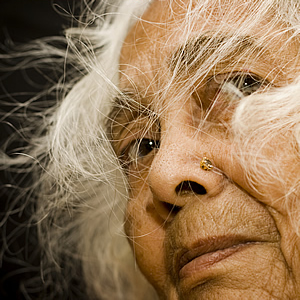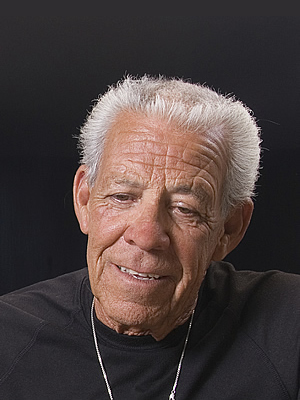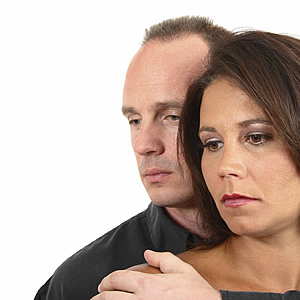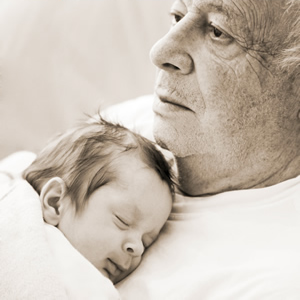People of any age can turn to self-injury, it isn’t a ‘teen thing’.
 Before discussing adult self-injury, we should first clarify what the word ‘adult’ might mean. Generally it might refer to age, and for the most part this article is aimed towards people who are older in years. But ‘adult’ can also relate to responsibility, and at LifeSIGNS we are only too aware that there are many younger people who live very adult lives, and who face responsibilities and challenges far beyond their years. So whatever your age, if you consider yourself to be living an adult life, then these words are for you.
Before discussing adult self-injury, we should first clarify what the word ‘adult’ might mean. Generally it might refer to age, and for the most part this article is aimed towards people who are older in years. But ‘adult’ can also relate to responsibility, and at LifeSIGNS we are only too aware that there are many younger people who live very adult lives, and who face responsibilities and challenges far beyond their years. So whatever your age, if you consider yourself to be living an adult life, then these words are for you.
We hope by now we’ve managed to get the message across that self-injury isn’t a ‘teen thing’, and that people of all ages might rely on self-injury in order to cope. While younger and older people share many of the same challenges in life and with their self-injury, there are also different difficulties to face by people at different stages in their life.
 Perceptions
Perceptions
Because self-injury is often perceived as something ‘young people’ do, older adults can feel that it is something they should have ‘grown out’ of. These feelings can be even more difficult when an older person has turned to self-injury for the first time, rathe than discovering self-injury in their youth.
 The media
The media
Although increasingly willing to raise awareness about self-injury, the media still focus on young people far too much. Even television programmes that include a self-injury storyline either tend to be programmes aimed at young people, or focus on a young person self-injuring. This sends out an inaccurate message, and increases feelings of isolation in older people who self-injure.
 Less help
Less help
If you are older, it might feel that there are fewer organisations out there that can help you. There seems to be a lot of mental health and support related organisations that cater to people under 25; but if you’re over 25 it can be more difficult to find somewhere that you feel you ‘belong’. Often, funding for projects and support services is literally ring-fenced for the government’s or sector’s definition of ‘young people’, meaning that organisations are more likely to get funding / budgets if they develop services for young people.
Resources, funding, and the attitudes of some healthcare professionals, may make it more difficult for older people to obtain the professional help they need.
Young adults, once they hit a certain age, may find they lose vital support and resources that they had been relying on.
 Friends and loved ones
Friends and loved ones
Friends / loved ones of adults may be less likely to be educated surrounding the subject of self-injury, making it more difficult for an adult to bring up the subject with loved ones.
Also, whereas young people are encouraged to talk about their self-injury with parents and loved ones, adults have to consider just who they can turn to.
 Responsibilities
Responsibilities
Adults, in general, have more responsibilities than young people. Whereas young people are usually the ones who are cared for, quite often adults find that they are only ‘carers’ and are not ‘cared for’ themselves. This not only means that they may receive less support, but it also means they have a responsibility to maintain their caring roles, while attempting to also care for themselves.
When a young person finds themselves in a caring role, the burden can be even greater. They are at a time of their lives when they are supposed to be the one being cared for, and yet while their friends might be living the ‘normal’ life that young people need, they find they are forced to take on adult responsibilities. This is damaging not only because they tend to miss out on the ‘fun’ side of youth necessary for emotional balance and wellbeing, but also because they don’t yet have the life experience needed to cope with such responsibilities.
This is also true for young people who although may not have to care for others, neither are they cared for themselves. Some young people are left to fend for themselves, without the support, nurturing and guidance necessary for emotional balance, growth and wellbeing. It’s not surprising that life can feel overwhelming.
Shame and secrecy
Considering all these matters, shame and secrecy, while common in anyone who self-injures, may be even more burdensome for older people.
 Time
Time
Adults who are juggling careers / families / finances may have less time for themselves than some younger people, making it more difficult for them to engage in hobbies and activities that can enhance health and happiness and provide much needed distraction.
Similarly, young people forced to cope with adult responsibilities will not have the time they need for themselves. They may have to care for others, or they may have to juggle school with a job and household responsibilities. We don’t mean the usual responsibilities that a young person might expect, such as household chores, helping care for younger sibblings occasionally, or working to earn money for themselves. We’re talking about people who run their households, or are the sole carer for another person, or who are forced to work in order to financially support others. These people are far less likely to have the time they need to care for themselves.
The feelings of loneliness, isolation and lack of time can be even more enhanced for young people in these situations, because they are only too aware that their lives are not the norm, and that their peers are leading a far more care-free life.
 Drivers
Drivers
Because of their increased life experience and more complex daily lives, adults (or young people living with adult responsibilities) may have a wider range of ‘drivers’ that could lead to self-injury.
How we can help
Whatever your age or responsibilities, you are not alone. People of all ages and in all kinds of circumstances turn to self-injury in order to cope. And everyone deserves help and support.
LifeSIGNS is a fully inclusive organisation and our members range from young teenagers to older people who have retired. Our resources are written for ‘people’ who are affected by self-injury, and we offer guidance and support for everyone.
Whether you need advice for moving away from self-injury, distraction techniques, hiding scars, obtaining professional help, talking to loved ones, getting through the urge to self-injure, or just somewhere to talk about the things that are going on your life, we are here for you.
We are constantly looking to improve and increase the resources we offer to people who self-injure. So whether you’re an adult in years, or a young person living an adult life, we’d appreciate hearing from you. If you’d like to share your own personal story with our members, or if you have suggestions for ways in which we could improve our resources to help more people like you, or if you’d like to challenge or discuss any of the points raised in this article, then please do contact us.

166 Comments
frankie
May 15, 2022I am over 40 and lately I have not self harmed. my roommate is bad for me
i am so depressed i want to to do it again.
Amdrevski
April 12, 2022I have self harmed since I was 14. I stopped for a long time, but I have started again. I cant talk to anyone, because they wouldnt understand. I am Bipolar and had to stop medicating 12 months ago when my meds nearly killed me. Every day. Its a struggle. I dont know if I can keep winning.
William
March 18, 2022I am a 60+ year old male , i just recently started cutting again. I was in hospital last weekend, I was released after 36 hours and put back to the same situation. I have no support and this is my way of releasing all the tension that has built up
MIchelle
February 1, 2022Im nearly 50 and have cut since childhood. My main trigger as an adult is self hatred. I am successful at work, educated, have a support system and see a therapist and psych. Married over 20 years with grown successful healthy kids. Childhood trauma is awful.
Gail
December 21, 2021I am over 50. I self harm. I am not cutting but I use rubber bands. They hurt like hell too. Why can’t anyone see me? What am I doing wrong?
Wedge
August 28, 2025You deserve support; ask your doctor for a mental health referral – you need to start talking about the underlying distress and what you’re trying to cope with.
Sano
December 20, 2021I don’t remember why I started. I just know I’ve reached a point where the break it gives me from all the pain far outweighs the shame associated with being 30 and relapsing at least once a month.
Its just really nice to be able to control at least one aspect of my life.
Mr K
November 28, 2021I’ve been self harming since I was 10. I’m now nearly 50. When I got to 20, I thought the urges would stop. They didn’t. Whilst they didn’t intensify, they never went away. I have gaps ranging from a few months to a few years. The causes and theories as to why just don’t seem to fit for me and I sometimes wonder if I’ll ever escape.
Kels
November 28, 2021I’m just in my 20s. I know I’m not very old yet, but with all of my responsibilities it sure feels like it. I started self harming when I was 14 or 15, and I stopped until this year. A lot of new trauma has brought me back to my old ways, and now I find that I’m injuring myself in several ways (drinking and smoking as well.) It’s getting hard for me to see any of this ever getting better, and this time I’m really scared I won’t be able to stop. I can’t even afford a therapist so it feels like I have to shout into the void online. I feel so alone, but it helps to know that it’s not just a “teenage” thing that I should’ve grown out of, and that there are others out there who understand.
Skruffs
November 12, 2021I am over 50, and started cutting around 6 months ago, I am struggling to cope for 2 years now with little help from mental health services other then an increase of medication every 2 months.
I have recently been diagnosed with PTSD and an emotional disorder connected with alcohol *wotever*.
I have still received no help, 2 years later and am still waiting, i can not cope with being around people, i can not cope with being outside anymore, i am soooo scared of everything now.
I no longer know where to go and what to do……
Claire Mulligan
October 26, 2021I’m nearly 50, I used to cut years ago after an abusive behaviour, I stopped for years, blocking out everything and hiding behind the walls I’d built around myself , concertrated on raising my kids , I was happy .
Then my dad got dementia , I looked after him for over ten years til he passed, he was my hero , the only man who’d ever really loved me . I feel nothing anymore , I feel numb all the time .
Last year I had a stroke and thought I should take the warning as a chance to start living my life again , I recovered with no side effects , I was lucky .
I joined a dating site and it has turned out to be the worst thing I’ve ever done , I’ve ended up feeling more unattractive and unwanted than I ever have , I’ve ended up sleeping with strangers just to try and feel anything , which just makes me feel worthless , so bad that I have started cutting again.
But now i can feel myself plunging into what I call my spirals , I try talking to the few friends I have told but they just don’t understand why I do it , how can they when I don’t even understand myself. I always tell myself never again but when I fall into the spirals I can’t pull myself out of them.
I know I need help but I don’t open up to anyone cos I don’t know what causes them so I just put a smile on my face and carry on , ironically I’m a carer in a nursing home and they always say how happy I am , just goes to show what a smile can do because if they looked into my eyes they’d see I’m dying on the inside
Kend
October 25, 2021I self harm and I am over 40. I have no confidence and I find that I am very isolated. No one seems to care. Everyone around me is busy living their lives. More than anything I just wish someone would ask me how I am doing, not just as a greeting but as an honest question. I guess it’s my own fault. I dedicated my life to serving others, taking care of others and loving others. People are so used to me helping them, that they don’t bother to ask if I need help. I can say I have honestly never had a friend who didn’t use me as a therapist. I feel so alone and tired.
Dan
October 22, 2021I am nearly 50 years old and I started when I was 13 after my dad passed. Then stopped for about a year and started when my brother left. then again on and off Few a few years. And now I have been doing it every day for about 2 weeks.. my wife has left me and that’s what triggerd it. And it gets worse every day. i found myself doing it in the bathroom at work.i just want it all to end
SGB
October 20, 2021I’m over 50, a man. I have been in therapy a year following suicidal thoughts. I’m on a real cocktail of pills and with help I’m slowing moving forward.
I suffered abuse until I was 13. Doing counselling has meant having to talk about it and that has made me relive the shame and fear.
I hate myself so much I regularly hurt myself.
My counselling is trying to help me but it’s just a punishment I feel I deserve.
Jean
October 11, 2021I am an adult self harmed whilst not self harming for the last three years find that I feel the need to return to it again. I have self harmed on and off for over sixty year through so terrible things in my life but there have been wonderful people around who have helped me. The combat stress councillor, this website, other therapy, the coping strategies given on this website all those years ago are still with
Red
October 4, 2021I cut once in my teenage years and never did it again . But now I crave it . I got COVID 19 and it’s like when I got ”better” it feels like I can’t feel anything. Like things I know make me happy or feel warm I feel nothing . I also get intrusive thoughts that make me think I’m a monster which also makes me want to cut I just want it to end.
K-T
August 21, 2021I’m still cutting myself up in my 30s and I believe there never will be a way out for me, I’ve had lots of therapy which helped me a great deal, And I have a great understanding of why I started doing this to myself, though I still can’t resist the urges to feel physical pain, I’m not even in an unhappy place in my life right now, Coming across this page has made feel better knowing I’m not alone here xx
Stay safe and love to everyone on here! ❤️
Mary
August 10, 2021I started self harming in my 30s. I suffer with depression but I try to hide it from my family. I hurt myself when I feel like I don’t have a voice. I try to push childhood and present pain deep inside and pretend as of it doesn’t exist. But it does exist because when I self harm, it feels like I am able to shed my feelings. Idk
Hang in there guys! You are not alone!
L
August 3, 2021I feel so ashamed of my self harm and I’m 30 year old and have been doing it off and on for years. It’s my only coping strategy as nothing else seems to work for me.
Ruth
April 24, 2021I don’t know what there is to talk about. People ask what was going through your head, what were your thoughts. It’s not like that, it’s a strong physical urge and sometimes I can control it and sometimes I can’t. But there is nothing to talk about. Nothing to discuss.
Terri
April 8, 2021I’m approaching 50 and have self-harmed on and off since I was 13. I’ve had lots of therapy which I had to pay for privately which was a massive help and resulted in a 10 year ‘break’. I’ve currently got a whole heap of personal issues going on in addition to working full time at home through lockdown. I have found as I got older, though I self-harmed less when I did it was worse.
I’m slowly finding what helps now, it’s new things and that’s ok, I’ve just got to find new things that help. It is difficult to find adults who understand and don’t realise that it’s not just something that affects under 25’s.